#folklore friday
Text
Blog Directory - Folklore
Banshee
Bigfoot
Doppelganger
Fairy Tale: The Sleeping Beauty in the Wood
Gargoyles
Gnomes
Goatman
Golem
Griffin
Kelpie
Krampus
Leprechaun
Loch Ness Monster
Mothman
Phoenix
The Bray Road Beast
The Headless Templar
The Jersey Devil
Will-o'-the-Wisp
Head back to the blog directory ->
#folklore#folklore friday#writing with folklore#supernatural#paranormal#writing paranormal#ghosts#monsters#mythical creatures#blog directory
122 notes
·
View notes
Text
Fic Prompts: Free Day Friday
It's Black Friday and I refuse to leave the house. Here, take my incredibly and unrepentantly self-indulgent Eldritch Damas au.
Premise: Damas death scene but close to a light eco vent and Jak tries to heal him.
Well Tumblr won't let me fix the formatting it donked up, guys, so there's a copy of this post that's actually readable on dark theme up now.
Damas has never been exposed to that much at once, unfiltered. Jak can't control how much he's channeling from the vent, he's too distraught. And he ends up changing Damas in the way the Dark Warrior Program changed him.
Damas can't control the light eco transformation. He looks like some kind of ascended being, trapped in a more powerful form and unable to utilize his new powers in a way that would deplete the eco and let him de-transform.
Do people consider him dead? A changeling? A Precursor-king? Jak would feel so guilty, having put this on Damas's shoulders without him having a say in it.
_____________________________________________________
He's guilt stricken, he's horrified, he's so sorry, Damas please-
He doesn't know he's Damas's son, Damas doesn't know he was always Jak's father and not just recently his father.
Jak thinks of the Arena, thinks he knows what Damas's wrath looks like (he doesn't, he's seen only the strongest commingling of worry and frustration)
His war amulet feels meaningless. He has betrayed his leader, after all. The one ruler he chose to serve willingly. The only adult in his life to see his darkness and embrace it as simply part of him. And look what Jak's done to him. He thinks he deserves what is surely coming, but he's still just a boy and he can't help pleading for forgiveness.
And Damas sees a child, stripped of his tough protective shell, terrified beyond words -- is he so horrible to look upon? -- pleading incoherently for either forgiveness or mercy, he can't tell which. Tears stream down his face, making him look disturbingly young.
"I didn't mean to- I didn't mean to, Damas, please-! Please forgive me! I-I-I lost control of it, I'm sorry, I'm so sorry!"
Jak doesn't beg. Jak never pleads.
This is profoundly wrong and he knows this in his heart although he cannot quite fathom the depths of the wrongness he feels. He only recognizes that he does not want this boy to kneel before him. He has never been so formal before, it feels unnatural for him to be so now.
(Veger arrives late, does not recognize the cosmic horror as the king he willingly betrayed. He sees the dark eco freak humbled, on his knees before what he believes is a Precursor. He thinks that at last the thorn in his side will be struck down)
This is it! At last! Veger thinks
And then this thing that was their king bends
Jak grieves, believing Damas no longer knows him; he wonders if this is worse than Damas being angry. Everything they've been through, every memory, just gone? As beyond reach as Jak’s own childhood? And he did this to him.
- this is it. I won't fight him, Jak thinks -
And the great tendrils of its -- his -- wings wrap around Jak. On that too calm face, artificially peaceful, something quizzical appears in the tilt of a mouth swirling with stars. Wings draw close around them, dragging Jak up to collide with a broad chest thrumming with energy both alien and familiar. Light eco begins to seep into Jak, whispering beneath his thoughts "ours, ours, ours"
He traces a glowing hand along Jak's cheek, cocks his head and twists Jak's face back and forth with an innocently curious expression as though he's never seen him before.
Something sparks in Damas's eyes, some thought or impulse, and he seizes Jak by the upper arms. The words that pour from his mouth are ancient, a dialect lost long ago to all but the monks and those who once called Sandover their home.
"Mine…? You are! You are mine.”
It is a declaration, a discovery. A revelation. A promise.
With a flick of his wrists, he sends Jak tumbling into the light eco vent. Light flares and Jak transforms with a choked cry. Daxter panics, but he can't get past Damas's wings to get to his best friend. He watches Jak stand on shaky legs, wings curled tightly around himself as though he is trying to hide. Hide from his shame, hide from his friend, hide from his king. Light eco usually calms him, soothes his nerves, but not this time. It is frenzied, yet it is rejoicing, singing through his veins like a homecoming and Jak is left disoriented. Dazed.
Ours, ours, ours-!
Unnaturally strong hands lift him up under the arms, leave his feet dangling like a child's. Jak doesn't remember ever being held like this, outside of the secondhand memories of holding his own childhood self. When he finally works up his courage and looks into the Precursor King's eyes, looking through the filter of light eco himself, there is no anger. Neither is there a lack of recognition. Damas still knows him, that's becoming obvious. Jak looks into his eyes and sees pain and acceptance and a naked, boundless joy.
And Jak is so stunned that he forgets in that moment that he was trying to hide. He almost forgets why he feels squirming guilt -- albeit muted -- under his skin. He knew that Damas liked him. That Damas was comfortable expressing pride in him, even in front of the whole Arena. This is something else. Something Jak has never been bold enough to hope for outside of his own lonely imaginings: that Damas might see him with a kind of fatherly affection. That the closest thing he had to a real father figure might see him as a son as well.
"Child,"
Damas echoes, proud and warm and earthshaking,
"My child."
And what Veger sees, what he thinks he sees, is the child he ripped away from Damas, the tainted heir, receiving the blessing that should have been his: to ascend to Precursorhood. Welcomed into this evolved form as though the dark eco meant nothing.
He can't fathom it.
His worldview is cracking at the edges.
Oblivious to his crisis, Damas -- now closer in nature to his ancestors than he knows -- is content. This is his child. His. The eco in their blood harmonizes, dark with light, in one melody. He knows this weary warrior. He knows the blood that flows in his veins. His subject, his best warrior, his impudent rascal, his Jak: his son.
Vaguely he knows there's something they were supposed to do, something quite important. But it doesn't seem as important as stopping time just so that he can hold his child in his arms again.
Jak would like to get down, he really would. His wings flail in an ultimately futile bid for freedom. He has a world to save. But Damas won't let him go. He's smiling -- it's a relief, but the guilt still eats at him and he doesn't understand, what is the eco doin? Why is it harmonizing? Does the light eco in Damas recognize his own eco? Is that why he's calling him "My own. My little one."?
Jak has had enough experience with the Light Form that the Precurian instincts don't overwhelm him, and he still thinks on a very human level. But Damas doesn't know how to separate human instincts from Precurian instincts. They're all one to him.
His memories run against the swell of light and life and love and absolute otherworldliness coursing through him, too strong to control.
"Why aren't you angry?" Jak whispers as he tries to find somewhere for all that light eco to go.
Tendrils of living eco brush across his cheek in a loving caress and lift his chin. Jak finds himself leaning into the touch without thinking as he watches the stars shift and swirl across Damas's face. This Light Form of Damas croons comfortingly, a subsonic rumble that is both calming and Alarming to Daxter and even Veger as they watch.
"Angry?" The word lilts oddly in the old language. "Why, little one?"
"I...I did this to you! You didn't choose this!"
"But now I am neither dead nor dying. And I know who you are."
Jak twists up his face in confusion, refracting light across his cheeks.
He's not afraid, but he's hesitant to ask. "Who...who am I?"
"My son."
#eldritch damas au#eldritch dad#jak and daxter#fic prompts#writing prompts#releasing au ideas into the wild#jak and daxter au#in which humans who do too much Time Shenaniganry and eco channeling are at risk of becoming Neo-Precursors#the sketchy Ottsel Precursors are very very nervous about this#Jak hasn't seen Damas's seal and doesn't realize yet that he's Damas's kid both literally and figuratively#Daxter has figured it out and mistakenly assumes Jak knows#Damas technically could change back but good luck making him do it#friday snippets#folklore friday
51 notes
·
View notes
Link
In olden times the people were afraid of many things which they are not afraid of now. This was one of the fears of the people of Moville long ago.
On Christmas Eve the men all got off from work one or two hours before they got off any other night. The reason was because it was believed by the people that the dead wandered about on Christmas Eve night and if they caught anybody they would carry them away.
A very merry #FolkloreFriday to everyone who celebrates -- In keeping with the season, today I’ll talk a little bit about traditional Irish Christmas customs. To start off: We have basically no idea about how people in pre-Christian Ireland would have spent this time of year -- it seems likely they did *something* for the solstice, but there’s even less documentation than usual.
As my friend @marzipanandminutiae enjoys pointing out, Christmas was, traditionally, spooky season, before it became a cornucopia of candy cane coated capitalism. Ireland was not so different, as you can see from the example here, where the dead were believed to wander about on Christmas Eve night, ready to take unwary travelers. (Perhaps, in keeping with Irish tradition, we can also assume some link between the fairies and the dead here, given the propensity of the fairies in Irish tradition to kidnap people.) One of my personal favorite international folktales, which ironically never gained much currency in Ireland but was very popular throughout medieval Europe and had a strong survival in the folklore of the Scandinavian countries, is The Midnight Mass, also known as The Mass of the Dead (E492 on the Stith Thompson Motif Index, for anyone curious.) This tale, as it’s usually told, features a woman who, accidentally believing that she overslept on Christmas Day, tries to attend the morning Christmas Mass, only to realize, when she sees a dead friend or family member, that it is in fact the midnight mass on *Christmas Eve*, which is populated by the dead, that she has unknowingly attempted, breaching the boundary between the world of the living and the dead. She is warned by a friend or a family member, and makes her escape before the Benediction, though her coat is torn to pieces by the grasping, skeletal hands of the undead. (In at least one Norwegian variant, the protagonist, who is a man, is sick for some time after.)
On a slightly cheerier note, Ireland, like many other European cultures at this time, had a belief that the animals could talk on Christmas Eve -- of particular importance was the donkey, with multiple Irish accounts of donkeys and oxen being seen praying in the stable on Christmas Eve, in commemoration of their role in the Nativity, and sometimes there are accounts of roosters crowing all night to keep away evil spirits. There are a number of stories that feature an unwitting master wandering over to the stable on Christmas Eve night...only to hear the horses gleefully prophecize his death. (And one account that says that, if you bring a black ass to a well with you, not only will it get down on its knees to pray, but it will turn the well into wine!)
Familiar to anyone who has done a bit of work on St. Brigid’s Day customs, it was also common to leave the door unlocked for the Holy Family to take shelter in the house. In one account, from Clonmel, Co. Tipperary, a woman recounted her grandmother leaving baby clothes as well.
Other traditions, which will be very familiar to most cultural Christians, are also recorded -- Decorating the house with holly and mistletoe, hanging up stocking for Santa Claus (though I found at least one account from Co. Carlow where the Christmas gift giver is an old woman, who has a sleigh pulled by dogs) sending Christmas cards, cooking meals of goose or a turkey with stuffing on Christmas Day (though, traditionally, due to the prominence of Catholicism and the prohibitions against eating meat on certain days, fish was very much the dinner to eat on Christmas Eve-- potatoes and butter, sometimes with oat bread, is also common), burning a yule log, lighting candles in the window (sometimes with the specification that the youngest in the family should do it). These are traditions that were recorded in 1938, well after the time when the modern Christmas had started to be established, and so they’re very much reflective of broader norms across the Anglosphere at that time.
6 notes
·
View notes
Text
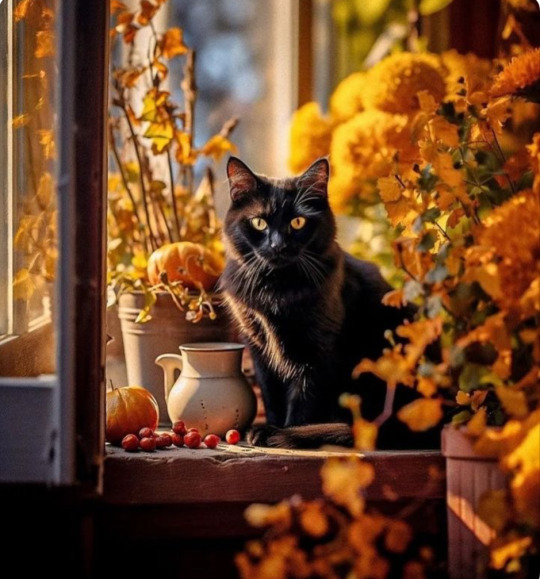
Happy Friday the 13th! According to a Welsh folklore, black cats are lucky. “ It is very fortunate to have a thoroughly black cat on the premises.”
622 notes
·
View notes
Text
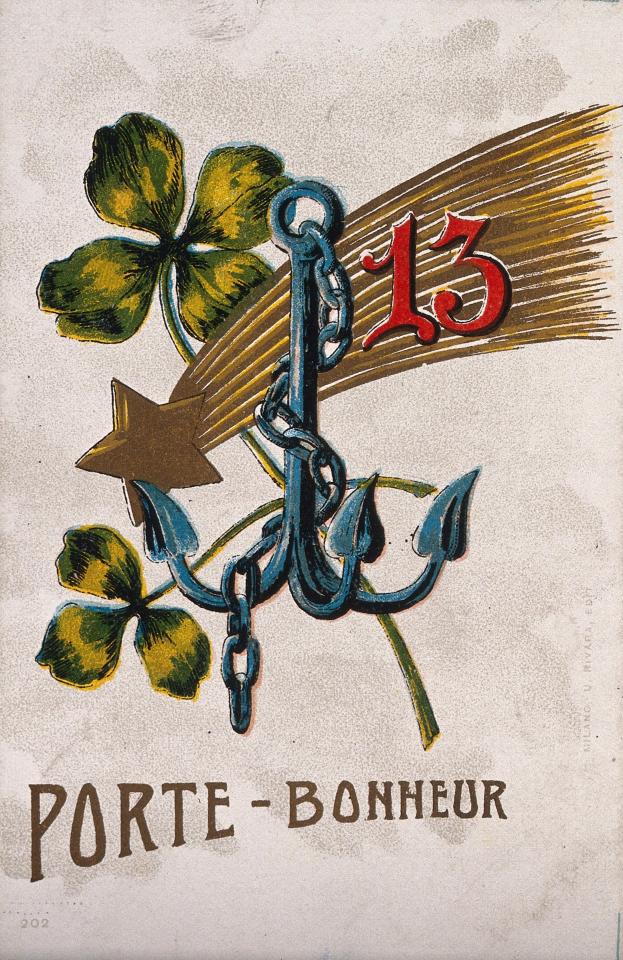
Feeling superstitious this Friday the 13th?
Superstitions, magic, and witchcraft have deep historical roots, spanning across cultures and civilizations. Rooted in the human quest to understand and control the mysterious forces of the world, these practices often involve rituals, symbols, and beliefs that go beyond the realm of empirical evidence.
Superstitions are often cultural traditions or irrational beliefs, while magic encompasses rituals and spells believed to harness supernatural powers. Witchcraft, historically associated with individuals, often women, who were thought to possess magical abilities, has a darker side marked by persecutions. The infamous witch trials, such as the European witch hunts of the 15th to 18th centuries, resulted in the persecution and execution of thousands.
Fear of the supernatural, religious fervor, and social tensions contributed to these dark chapters in history, underscoring the dangers of unchecked superstition and the persecution of those labeled as practitioners of magic or witchcraft.
Learn more on JSTOR in "Superstitions, Magic, and Witchcraft," an open access chapter from The Consistory and Social Discipline in Calvin's Geneva.
Image credit: A Postcard Wishing Good Luck Illustrated by Various Lucky Charms. Chromolithograph. From the Wellcome Collection on JSTOR.
#jstor#research#academic research#superstition#magic#witchcraft#calvinism#supernatural#witch hunts#good luck#friday the 13th#occult#folklore
125 notes
·
View notes
Text
🌺🧚♀️🌿 Welcome, Fairy Lovers, Enthusiasts and Believers to Fae Friday! 🌿🧚♀️🌺
˚✧₊⁎᷀ົཽ⁎⁺˳✧༚ ˚✧₊⁎᷀ົཽ⁎⁺˳✧༚ ˚✧₊⁎᷀ົཽ⁎⁺˳✧༚ ˚✧₊⁎᷀ົཽ⁎⁺˳✧༚ ˚✧₊⁎᷀ົཽ⁎⁺˳✧༚ ˚✧₊⁎᷀ົཽ⁎⁺˳✧༚ ˚✧₊

I came up with the idea of Fae Fridays to share with you the wonderful opportunity to celebrate the enchanting energy of the fae realm and connect to the magic that fairies bring into our lives through art, poems, literature and anything else I find captivating and wish to share with you.
˚✧₊⁎᷀ົཽ⁎⁺˳✧༚ ˚✧₊⁎᷀ົཽ⁎⁺˳✧༚ ˚✧₊⁎᷀ົཽ⁎⁺˳✧༚ ˚✧₊⁎᷀ົཽ⁎⁺˳✧༚ ˚✧₊⁎᷀ົཽ⁎⁺˳✧༚ ˚✧₊⁎᷀ົཽ⁎⁺˳✧༚ ˚✧₊

Here are some ideas to infuse your Fridays with the Shining Folks whimsy and charm:

Fae Garden Magic: Set aside some time on Fae Fridays to tend to your fae garden. If you don't have one yet, this is the perfect opportunity to create a miniature garden filled with tiny plants, fairy houses, and whimsical decorations.
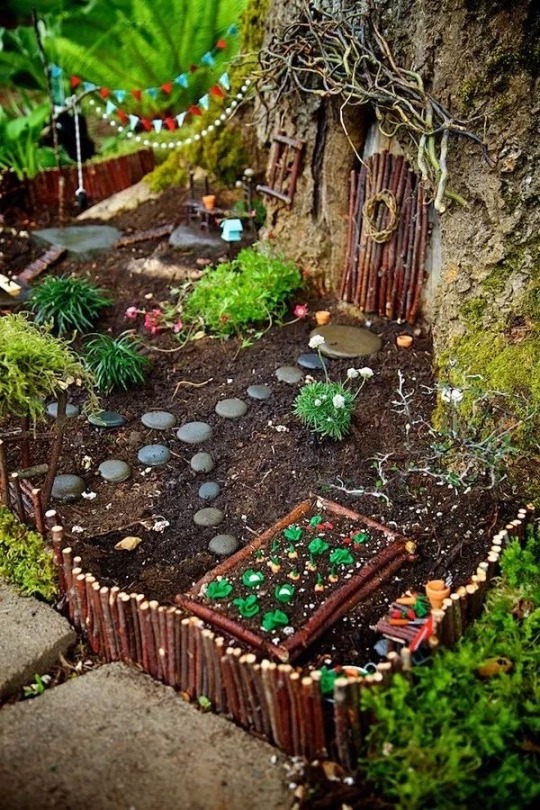

Fae Crafts and Creations: Engage in creative activities inspired by fairies. Faery wings, create fae-inspired art, or craft your own faery house using natural materials. Let your imagination run wild and allow your inner child to play and create.
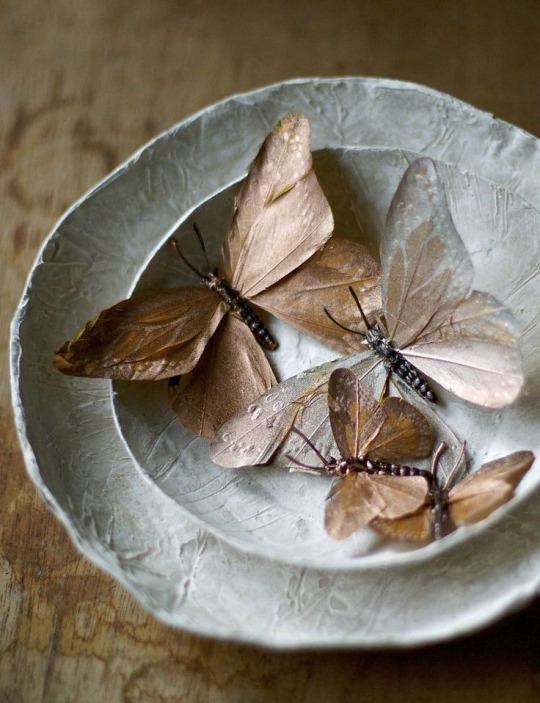
Fae Oracle or Tarot Readings: Pull out your favorite fae-themed oracle or tarot deck and do a reading specifically focused on connecting with the energy of the fae. Allow the cards to guide you and offer insights into the otherworld.
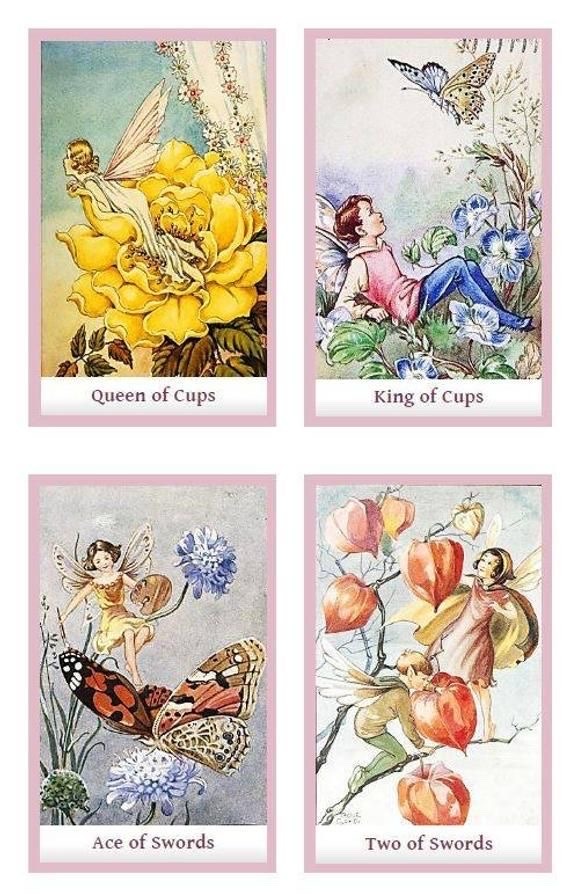
Fae Storytelling: Spend some time reading or writing fairy tales and folklore. Immerse yourself in the magical stories of fairies, gnomes, and other mythical creatures. You could also gather with friends or family and take turns sharing your own fae inspired tales.
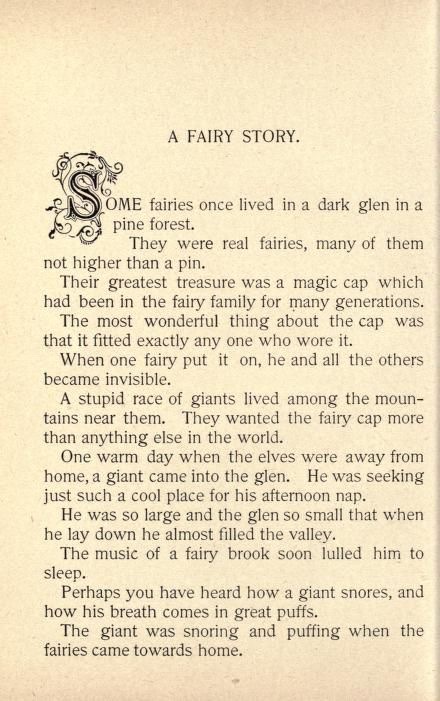
Fae-inspired Treats: Whip up some fairy-themed treats to indulge in on Fae Fridays. Decorate cupcakes with edible flowers, create fairy-shaped cookies, or brew a cup of floral-infused tea to enjoy as you.
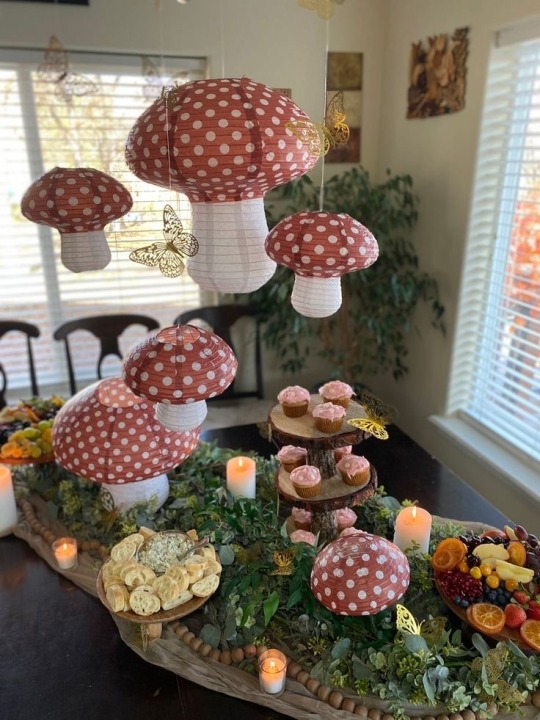
Remember, Fairy Fridays are a time to celebrate and honor the otherworld/fairyland. I hope I’ve inspired you to let your creativity and imagination guide you to infuse your Fridays with faery magic. Embrace the whimsy, playfulness, and joy that the fairies bring into your life.
Feel free to share your Fae Friday experiences and ideas. 🌺🧚♀️✨
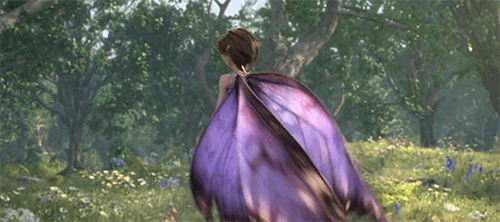
~Fae
#fairycore#faerie folklore#faery#fairy witchcraft#fairy witch#witchblr#pagan#paganism#witch#witchcraft#fae#fae friday#fairy friday#naturecore#cottagecore#fairies#fairy faith#fairy aesthetic#faerie faith
22 notes
·
View notes
Note
Do you have a fun fact in these trying times?
Tell me, friend, do you know the story of the Lambton Worm? If not, then Today You Learned about it.
[This story is in, like, ALL the dragon books.]
The story goes that some time in the ages of the Crusades, the town of Lambton was doing its usual Sunday business of going to Mass–except for the young heir to the Lambton Estate, John Lambton, who was going fishing instead. He got a few disapproving looks from people on the way to church, but he kept fishing because he was a rebel like that. He had trouble catching actual fish, but as Mass was wrapping up, he caught something!

A worm that looked like the Devil.
Okay, so ‘worm’ in those days can also mean a serpent, and Wikipedia describes it as something eel-like. Just… he picked up something on his fishing line that was limbless, not that big, but ugly as all getout. John Lambton was freaked out by this, and he chucked it in the local well. Deciding this was punishment for his non-churchgoing ways, Johnny grows up, trying to forget about the worm. When he grows a little older, he even takes the Cross and goes on Crusade as penance.
Except the worm survived. And it grew down in that well, poisoning the water with its venom or perhaps its general ugliness. The worm eventually grows large enough to slither out of the well and starts to eat things–small animals, mostly. Then it starts drinking cows’ milk (which is a bad thing to feed dragons if you don’t want them to grow bigger), and THEN it gets big enough to start eating cows and small children.
This, as you may realize, is A Problem.
The people of Lambton, and its lord, realize that they can placate the thing by offering it milk and cows, but it keeps growing bigger, and they try to get people to come kill it. And of course knights come along and try to kill this dragon worm thing. It doesn’t work, though. Maybe they hack off a piece, but it grows back, and the worm wraps itself around a man in armor and squeezes him to death.
Finally, John Lambton, heir to Lambton, comes back from Crusade. He realizes what’s going on, and knows that it’s a problem he started in the first place, so he has to fix it. Though he sees that no one’s had much luck in killing it. So he goes to a local wise woman, and she tells him that he can kill the Worm, but first he has to make a special suit of armor, one with spearheads fused all over it. Then, when he chops it to bits, he must dump the remains in the river. And THEN, after the deed is done, he must kill the first living thing he sees. Otherwise, the house of Lambton will be cursed for nine generations.
Well, Johnny Lamb commissions the suit of armor, and then he tells his dad to arrange that when he’s done the deed, he’ll blow a horn, and so then a hunting dog will be released and John will kill it.
Lambton faces the Worm, which of course, wraps around him to constrict him. But it doesn’t work! Because his armor is covered in spikes! And so the worm pierces itself on his armor! And he has enough room to start chopping this thing to pieces. Then he throws those in the river, where the pieces are swept away before they can put themselves back together.
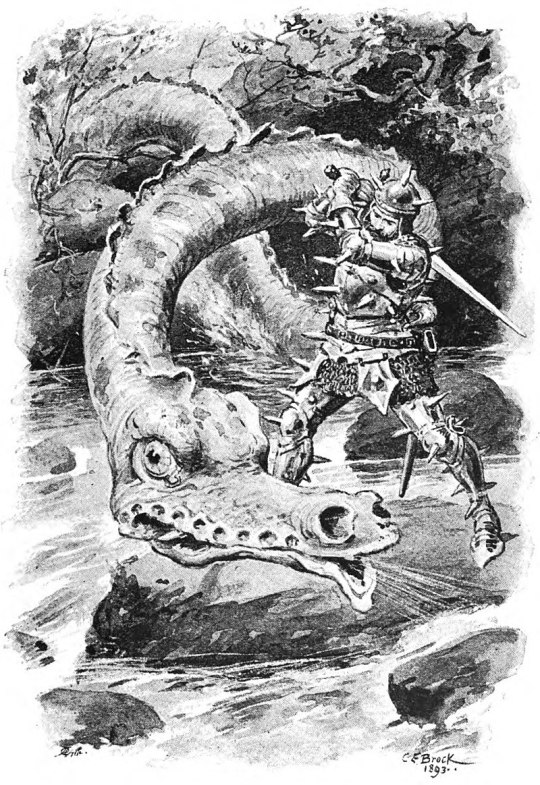
[C.E. Brock's illustration.]
Lambton blows the horn to signal victory. But ohes noes! His father is so happy that he forgets to release the hound, and runs to his son and kills him. John Lambton obviously cannot go through with killing his father, so he tries to kill the hound anyway, but it doesn’t work to avert the curse. For nine generations, none of the Lambton heirs died a peaceful death in their beds.
And that’s the story of the Lambton Worm, friendo!
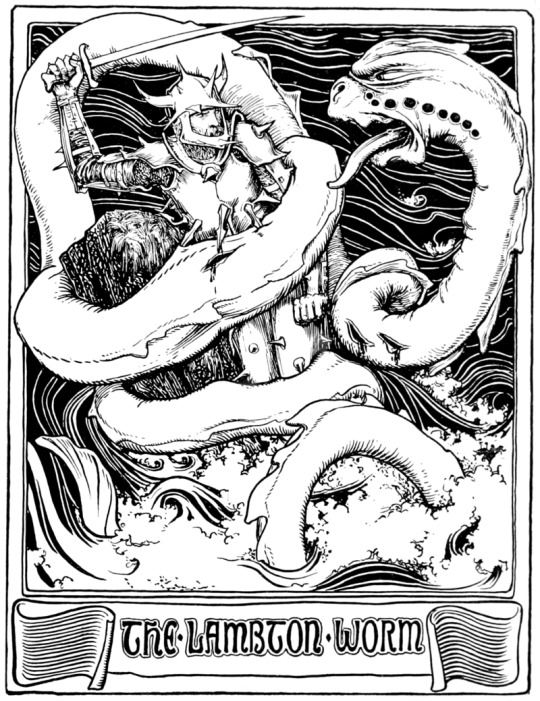
[John Dickenson Batten's illustration]
43 notes
·
View notes
Text
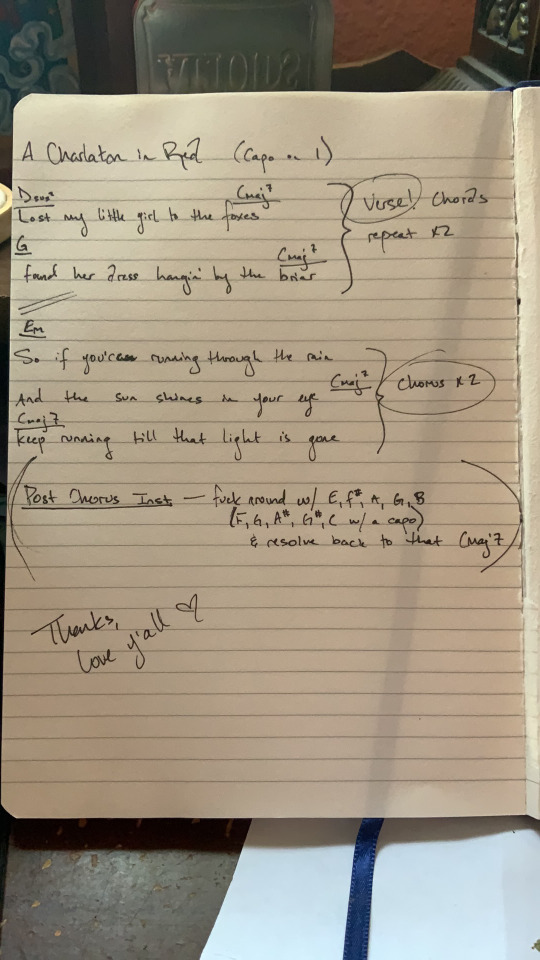
Hey all! Here's a quick lil' mockup I did of how to play Charlatan in Red. There's also a 10min tutorial video that's... just not high enough quality to go on our youtube page? Or at least I'll have to ask the band if they're ok with me doing that before I post it. I wanted to just throw it up on Tumblr but it was toooo big.
Please do reach out if it is confusing, I'm happy to provide clarity!
<3
-Walker
#forgetmenauts friday#forgetmenauts#fmns friday#fox's wedding#folklore#mythology#music#original music#the forgetmenauts
68 notes
·
View notes
Text
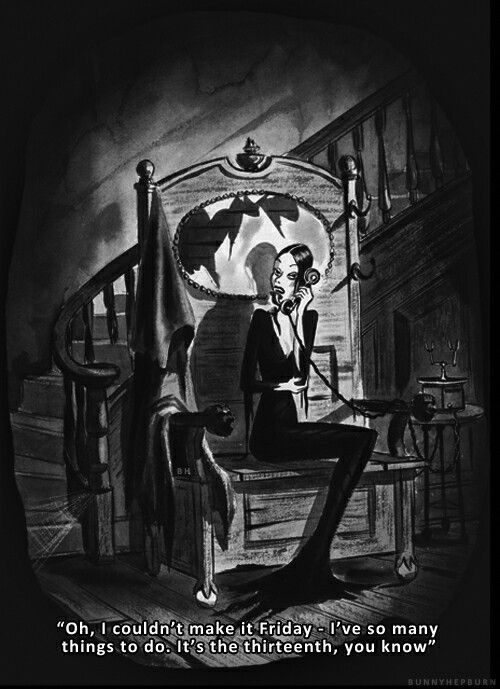
36 notes
·
View notes
Text



A lil (late) Good Friday horror comic.
There's a well known superstition that one must never go swimming, or even to the beach on Good Friday because without fail someone has drowned.
there was a discussion on caribbean Twitter talking about making a horror short story/film about this superstition and I couldn't get it out of my head, so this was my take on it!
experimenting with black and white and watercolour brushes in fresco!
#art#my art#illustration#digital art#adobe fresco#black and white#watercolour#comic#horror#horror comic#good friday#easter#superstitions#caribbeam superstitions#caribbean folklore#caribbean art#caribbean artist#vincentian art#vincentian artist
14 notes
·
View notes
Text
Vampire Fact #12 - How to Identify a Vampire
I’m back with another vampire fact! In fact, all folklore facts are now back, so expect to see more of these!
The winner of the last vampire fact’s Patreon poll was “how to identify a vampire” (that was a hot minute ago because I had to take a break from these), very much like my previous werewolf fact on how to identify a werewolf.

I won’t be covering pop culture vampires in detail/providing a list of how to identify vampires in pop culture. I’m not so deeply versed in vampire pop culture as I am werewolf pop culture; I only study vampire folklore, not their modern media, unlike with werewolves. I familiar with some of it, for sure, but I’d never pretend to be any kind of expert on broader vampire pop culture.
Please note the following is not to be considered a 100% complete list, as there are many, many vampire legends out there! This is just several of the more “popular” methods of identification and perhaps some of the better-known.
Some Folklore Vampire Identifiers
Pale - There are some stories in which vampires actually are pale in folklore, and in which being particularly pale might be a sign of vampirism.
Reddish or purplish skin - Conversely, vampires can also be identified - especially in Eastern European regions - by having “reddish” or “purplish” skin and perhaps even a swollen appearance. All of this comes from drinking too much blood. It’s basically the opposite of being pale: they look flushed and reddened instead of pallid. This one was not uncommon.
Red eyes - This didn’t always mean red eyes as in red irises, like in a lot of popular culture. Often, it could also mean similarly to the flushed appearance: it meant bloodshot eyes, eyes full of blood. But some might also be interpreted as having red irises, and let’s face it, red irises are very cool.
Unnaturally beautiful - This one isn’t uncommon in legends, either: unnatural beauty. Vampires in many stories seduced their victims, and it wasn’t too unusual for things to get steamy, either. Again with the conversely, though...
Unnaturally hideous - Vampires can also be unnaturally hideous. We’re talking like really nasty, because they’re monsters - often these are the monster vampires, demons, not vampires that were ever actually human. However, sometimes signs of being a vampire could also be just human traits that are considered hideous, such as having a caul, being exceptionally hairy (judgmental much?), etc.
Only comes out at night - This is an obvious one in both popular culture and folklore. Often in folklore, however, vampires also only came out at night because it was the only time they actually left their graves. Vampires didn’t come out only at night because they were burned by the sun in folklore (they actually weren’t!), but because they were nocturnal.
Signs of undeath in coffin - Often, vampires were identified via actually unearthing the coffin and taking a look at the corpse. There were many signs that might show a corpse was actually leaving the grave as a vampire, such as growth of the hair or fingernails, the eyes being open or partially open, blood around the mouth, reddened eyes, or a swollen reddish or purplish appearance, as if the corpse is engorged with blood.
Well, there’s a few, at least! There are so many vampire legends I won’t cover “all” of them until, you know, I write the Vampire Facts book someday (maybe? Werewolf Facts the book is definitely on the way, though). At any rate, be sure to tell all your friends how to find vampires today by reblogging this post!
Oh, and no, fangs are not included in folklore.
Also, if you are curious about vampire weaknesses, be sure to check out my post on that, too, as well as the vampire masterlist (linked at the bottom of this post)!
Until next time!
( If you like my blog, be sure to follow me here and elsewhere for more folklore and fiction, including books, especially on werewolves! And please consider donating and/or supporting me on Patreon - not only will you help me keep this blog running, but patrons get cool stuff and rewards in return! You’ll find lots more cool stuff over on my personal website.
maverickwerewolf.com — Patreon — Wulfgard — Werewolf Fact Masterlist — Twitter — Vampire Fact Masterlist )
#vampire#vampires#vampirism#vampire friday#vampire fact#vampire facts#folklore#folklore fact#folklore facts#mythology#monsters#monster lore#folklore thursday#folklorethursday#undead#legends
63 notes
·
View notes
Text
Fic Prompts: Folklore Friday
Someday I'm going to finish writing this story. It would help if I could actually remember where I put my notebook that had the outline and third chapter in it lol
This is a bit from the first chapter, setting up the main character, Dantes. For context, rulers in the kingdom of Hieracium are elected, and each takes the family name of the very first ruler of the kingdom -- an unlucky woman who was volunteered for the job because she knew how to do math related to switching currencies and nobody else did. So the Ulfric Clan isn't a bloodline, it's more of a title.
His father and mother had raised him to work as hard as any farmer or farrier or fisherman. Their particular branch of the ever-growing Ulfric clan had not always been rulers, the late Queen Mother had reasoned, and there had been no guarantee that Dantes would be elected as Maya's successor when she retired. Better to be a Jack-of-all-trades than to find yourself out of work with no practical skills.
But Dantes was more than happy to pull his share of the weight in both the capitol and the city. Perhaps his advisers did tend to gently poke fun at his habit of treating the staff like housemates rather than employees trying to do their jobs. And perhaps some foreign dignitaries looked down on Hieracium a little for having a ruler who was willing to scrub flagstones and scatter reeds with the scullion staff. But the Hieracia people loved him for it. It was a reminder to those within their kingdom and those watching from without that rulers were only mortals, like their subjects.
Dantes had just finished setting a cauldron of water to boil when the head cook shuffled into the kitchen. He smiled at her, dusted off his hands, and began to measure tea leaves into an enormous pot.
“Morning, Mrs. Bolton,” he said cheerfully, “Were the dormitories warm enough last night? I saw frost on the windowpane this morning.”
The elderly woman wrapped her pink wool shawl a little tighter around her shoulders and sucked on her teeth thoughtfully before pushing past the king to add several cups of dried oats to the cauldron. Her hands were not as steady as they once were, and she looked altogether too pale.
“Here, give me that,” Dantes said, trying to take the next cup of oats from the cook. “Sit down and warm yourself before you freeze!”
“Leave off, you!” The cook retorted, gently batting his hand away, “I’m a grown girl, I can handle it well enough.”
She made a face as the last of the oats for the porridge disappeared into the water, and held her hands out to warm them over the steam.
“Truth be told,” she admitted, “Twas a mighty cold night. I can’t speak for the others, of course. But me and Mr. Bolton, we do chill easier than we used to.”
Dantes tutted sympathetically. “I’m sorry to hear it,” he said. “I’ve heard that in Nermorn they’ve begun using little coal stoves to heat rooms without fireplaces. Shall I order some for the dormitories? I’ve heard they’re a little messy, but efficient.”
Mrs. Bolton patted his arm with the bold familiarity of one who had known him for most of his life.
“You’re a dear, your majesty,” she told him fondly. “Now you seat yourself! And, and, take some breakfast while you can, afore the rest of my kitchen miscreants wake to scrape the pot clean! I’ll not have it said of me that I let a king go hungry.”
“Yes marm,” Dantes chuckled. He let her push him to a stool by the fire -- no mean feat for a little old woman half his size -- and hand him a steaming bowl of porridge.
It was bland stuff. Dantes waited until Mrs. Bolton’s back was turned, and tossed two handfuls of nutmeg into the pot. He swiftly brushed his hand off on his trousers, lest the traces give him away, but his attempt at concealment failed anyway.
The instant the cook smelled the nutmeg, she crossed her arms and sighed. “Now sire, you know we need that for baking! You can’t turn every staff breakfast into something fancy.”
“I can try,” the king retorted, with a most unkingly pout.
A few of the other cooks, bakers, and kitchen staff trailed in as the fire warmed the stones. They each greeted the king respectfully, then collected their bowls of porridge and drifted away to begin their morning routines. There was bread to be baked, turnovers to be filled, and enough food to feed a castle to be prepared.
“Colin, get another pot of porridge going,” Mrs. Bolton ordered one of her assistants, “Tis cold enough to freeze the marrow this morn. Make up ten bowls for Jemmy to bring up to the night watch -- and mind you don’t let certain individuals meddle with the recipe!”
“We’re down to one more sack of oats, marm,” the flustered man warned, “All the rest went into the oat farls last night. For the upstairs’ breakfast, remember?”
“Nevermind,” Dantes interjected, pointing his spoon in Colin’s direction. “I’ll see to it that we buy more the next time we ride through Ainselv.”
The king visited the city of Ainselv often. It was only four hours’ ride from Iconos, the capital of Hieracium. As it was a little newer than Iconos, and a little larger, it had a much nicer library, and much nicer merchant stalls. Being so close to the shores of Lake Striga, they had first pick of the goods shipped across the lake from Nermorn. Being further east, Iconos often got what was left over.
“Ordering food is the cellarer’s job, your majesty,” the Assistant Head Cook said in mild reproof.
“Well I’m in charge of all the jobs, aren’t I?” Dantes defended himself, “I can give the cellarer less work today if I like!”
“Sure, and you’re not only looking for new tomes of frightful tales, your majesty?” Mrs. Bolton’s assistant teased.
“Now see here, Mrs. Poppy!” Dantes laughed, then spent an embarrassing two seconds cleaning bits of porridge out of his beard. “See here! That was one time! Heavens, come home with a book instead of a bull once, and you never live it down!”
“Who forgets an entire cow?!” Mrs. Bolton called from the dough table.
“A bookwyrm, that’s who!” Dantes retorted. “I’ll make that oat order, never you fear. Besides, I may as well find something new for the court intendant to read.” He made a face. “She’s up all hours like an owl with those tawdry war romances. May as well find her something with a little more substance, eh?”
“I...don’t know that the Lady Hawksbit is the sort who would care for your tales of knights and monsters, sire,” Mrs. Poppy muttered, but said nothing more about it.
Dantes poured himself a mug of hot mint tea, wished the kitchen staff a pleasant morning, and excused himself. “Off to work!” he announced, “It’s Thursday: out-of-doors work today.”
“Ooo! Mind you wear lots and lots of coats, sire!” squealed a scullion's child on the way to breakfast, “Mother said it’s wicked cold today!”
“And she’s quite right!” Dantes answered. “Oh, Charley, tell the butler I’m requiring a rotation of breaks by the fires today, won’t you? We want no frozen fingers here! Laundry will keep until the sun is properly up.”
“Yes sire!” the child chirped, “If there’s to be lots of breaks, will we get to play in the snow?”
“That’s a question for your mum, not me!” the king called over his shoulder. He took the stairs two at a time and came out in a cozy parlor that had once been an office.
Dantes had never really relished the idea of doing his share of the kingdom’s bookkeeping in the same windowless room his mother had favored. He found it unbearably stuffy in the warmer months. Upon taking the throne, one of the first things he’d done was to make sure his private office had windows that could be opened in the summer. That did incur the risk of pigeons coming to investigate the budget, but there were worse things in life.
Dantes hastily sipped his half-cooled tea as he backed out of the study and made his way up the north stairs to the grand hall. On Thursdays, instead of hearing from advisers all day, Ulfric Dantes was more accustomed to holding court for only four hours. Ministers of agriculture, water control, public health, and other departments related to the kingdom’s overall environment would present their reports to the king during this time. If anything was amiss, the king would ride out to personally contact whoever had been placed in command over the town named in the report. Married rulers usually delegated this sort of thing to their spouses, as that was the job of the vice-rulers. But Dantes remained cheerfully and stubbornly single, and liked to take care of things himself.
Thursday afternoons were generally spent in one of Hieracium’s six cities, holding town hall meetings with city government and civilians alike. They usually had much more specific ideas of what the royal court could improve upon than the advisers in Iconos did.
And, thus far, none of the civilians had tried to badger the king into some kind of political marriage. That was another point in their favor.
#folklore friday#fic prompts#writing prompts#original characters#original story#king and coven#ulfric dantes maximilian#clearly i was in a Redwall mood when I first wrote this#Dantes' main issue is that he wants to retire and adopt a bunch of kids but he's contractually obligated to find a successor first#his would-be first pick for a successor Does Not Want To Be King and will scream if both Dantes AND the population elect him#in Hieracium the people select a couple candidates and they intern with the ruler to see if it works#then the council does electoral votes to pick which one replaces the former king or queen#one of the main candidates would do anything to be chosen. the other wants nothing to do with it. the rival does not know this#original worlds
13 notes
·
View notes
Link
Transcript:
The Bow is said to be the demon of the air. The old people in Ireland always believed in the bow. It is said that she is a small woman and that when she was a girl she had a long head of hair which she was always combing.
She was very proud of her hair and it is said that when she died she was too bad to go to Heaven and too good to go to Hell and God sent her on this earth to cry after certain people when they die. She makes her path through the fields and on the hills. She goes around at night crying and keening and her cry is like the cry of a young child.
When a person out of the family she follows dies, she comes around on that night and cries under the window sill and everyone is afraid of her. When she is crying she is always combing her hair with a bone or a steel comb.
It is said that when you meet the Bow you should not say any or do anything to her. If you are passing on her path and happen to step on it she will be at your back when you look around and you must get off to let her pass. It is said that she is very wicked if you touch her. People who hear or see her get a very big fright.
Of all the figures who haunt the sidelines of Irish folklore, always at the corner of your eye, few have had an impact as great as the bean sí, or “woman of the Sí”, both in her native home of Ireland and abroad, where she’s one of the single most popularly adapted figures from the folkloric tradition. Here, in this tale from Co. Wexford, we see her referred to as “the Bow”, seemingly a phonetic understanding of the Irish badbh, which the banshee is popularly known by in some traditions. (Patricia Lysaght, in her excellent article on the banshee traditions, lists several.) Just like the Old Irish understanding of the word “Badb”, which could imply either a proper name (as in the case of one of the various figures associated with the Morrígan) or as a generic scald-crow, the banshee is often occasionally represented as a bird. (The barn owl is sometimes referred to as “scréachóg reilige” -- Literally “the little screamer of the cemetary”)
4 notes
·
View notes
Text
Deep Dive: Freya - Happy Friday!
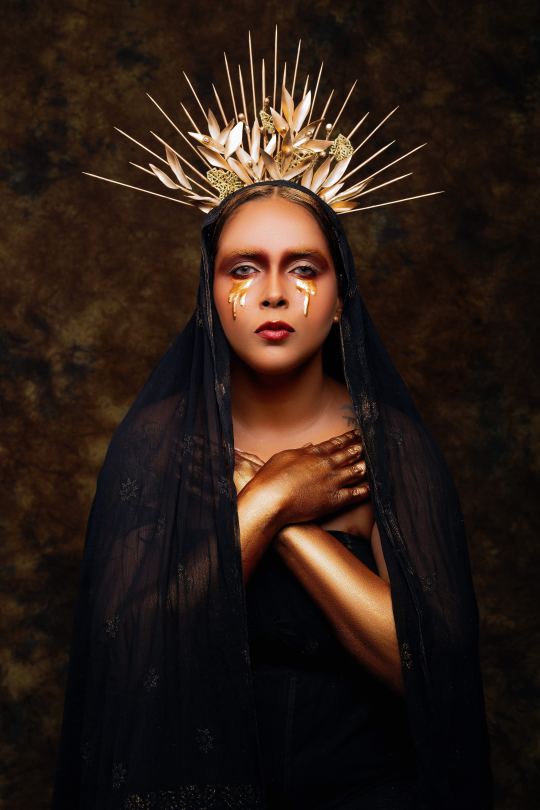
Freya is a staple of the Norse pantheon. She is depicted with long, flowing, flaxen hair and sea blue eyes. She is a member of the Vanír tribe, a group known for its connection to nature and nature magic. Freya introduced the Aesir gods to seidr, a form of Norse divination and a magical skill that it is said can even be used to change the future. Despite being known for her gentle and, at times, sexy nature, Freya fought fiercely in battle and was known for the trail of blood she would leave behind her in war.
Other Known Names
Freja, Freyia, Freyja, Fröja, Frøya, Frøjya, Frua, Mardöll, Hörn, Gefn, Gullveig, and Syr
My personal favorite title for Freya is Valfreyja or ‘lady of the slain’.
Note: Freya comes from Germanic roots. Meaning ‘the lady’, it is the root for the modern German term of respect for an elder woman, ‘frua’.
Family Tree
The Norse goddess Freya, or Freyja, was the twin sister of the god Freyr. Both were Vanír gods and children of the sea god, Njörd. Her mother is unknown but frequently referenced as a much older Germanic goddess.
She took Odr to be her husband. Little is known about Odr, but his named means ‘furious and passionate’. In many stories, Freya’s husband is Odin, and she replaces Frigg. Thus, Odr might have actually been Odin. This might be due to the migration of Germanic tribes and their religions clashing. As they blended, certain gods and goddesses replaced or overtook each other in title. Regardless, it is known that she had two daughters: Hnoss and Gersemi.
Associations
Freya was in charge of battle, love, fertility, and death. She, like Odin, had a claim over half the dead slain in any battle and could choose to bring them to her hall, Fólkvangar. (In fact, Freya has first pick of the slain over Odin). She is known for being gentle, but not necessarily for having a soft hand. She is a warrior goddess with a heart of gold, so while she is forgiving and nurturing, she will also expect you to grow some tough skin and learn to survive and eventually conquer.
Freya was sex symbol and lusted after by many gods and giants alike. In a little bit, we will get into a story where her sex appeal causes quite the predicament.
She was a völva or female practitioner of magic, or seidr. This magic was specifically used as divination, where the völva could possibly alter future events leading to better outcome in battle. Little is known about the social status of these shamans. As with many magical healers, they were revered by some and feared by others. In later periods of the Germanic tribes, the völva’s place became much more defined as a leader woman or chieftain's wife. She is also said to be the keeper of the knowledge of the runes.
She was associated with cats, specifically two that pulled her chariot through the sky. She also was represented by pigs and had a giant boar with golden bristles named Hildisvíni. She is said to have a magical cloak of falcon feathers that can transform the wearer into a falcon.
Friday was named after this goddess. It is believed to previously have been ‘Freya’s day’.
Rose quartz, amber, and tiger’s eye are stones said to be associated with Freya.
Jewelry and perfume are associated with the goddess due to her status as a goddess of beauty and fertility.
Mythology
Freya is a goddess of polarity, straddling love and war, life and death. Like Persephone and similar goddesses, she is seen as both a light and dark figure. She was witch, or magic practitioner, which is a position in society that also crosses the line between good and evil. Finally, she bridges the Vanír and the Aesir – nature and the celestial.
In the great Aesir- Vanír War, it was Freya that oversaw peace talks with Odin and proper sacrifices. It is said that after this war is when she introduces the gods to magic, a crime against the Vanír. It is also said that Freya could be known as Gullveig, the narrator of Völuspá who recounts the Aesir- Vanír war and predicts the fates of the gods in Ragnarök.
In one story, Freya becomes the center of a giant’s focus. He agrees to build a wall for the gods under tight time constraints and, if he completes the wall in time, take Freya away to Jötunheimr (the realm of ice and giants) to be his wife. Time passes and it looks as if the giant might succeed at this task. Worried, Freya reaches out to Thor and Loki for aid. In order to save her, Loki transforms into a mare and seduces the giant's prized stallion. Thor protects Freya from the giant’s rage as, without the stallion there to help him, the giant is unable to build the wall and unable to claim his bride. Another bright outcome of this story is that Loki goes on to give birth to Odin’s 8-legged horse.
Freya’s status as a sex symbol occasionally works to her advantage. One of her prized possessions, the beautiful necklace Brísingamen, was gained after she seduced the four dwarves that crafted it. Of course, in this story, Loki finds out about Freya’s promiscuity and goes to Odin. Odin has Loki steal the necklace from Freya using his powers of transformation. When Freya comes to Odin about the theft, he reveals that he knew everything all along and that he’ll only return the necklace if she convinces two kings to go to war with each other. She does so, and the two kings fight on for centuries until a Christian comes and settles the dispute. To be fair, the written version of this story comes from the Sörla þáttr, a retelling of Norse pagan stories written by Christian priests.
Unfortunately, a lot of the written history of Norse paganism is retold through the lenses of Christianity. This is why we see Loki depicted as a devil-like figure, and Freya stripped of her feminine power and portrayed as a harlot who was obsessed with sparkly things. It is understood that Freya would have been powerful due to her beauty and seen as a goddess of fertility and lust. Her lust was wielded against men, a weapon of her divine feminine nature.
Modern Worship
Many practitioners of Asatru worship Freya as a goddess of fertility, beauty, love, and abundance. Forming a connection with any deity takes time and patience. Everything you do must be done with love and intention. It is hard to complete a task then an hour afterwards claim that was in a god or goddess’s name. You first need to slow down and think about what you are doing and why. Most everyday actions can be a form of worship! Just writing this post, I started by dedicating my research efforts to Odin, a god of knowledge and its pursuit. Next time, before you step one foot outside your door, offer that time outside up to a god or goddess. Give thanks at meals for the food and company. Before you go to bed, meditate on a deity and try to connect with the universe. Effort and patience pay off when working with the gods and goddesses, but that effort and patience must be true and consistent. We can’t just turn to them when things aren’t going our way (not to say you can’t start building a relationship with them when life is far from perfect). We must also go to them when things are good and offer gratitude when life goes our way.
There are many reasons to work with Freya. You may be deepening your connection with nature and its associated deities. You may be going through a battle and need a powerful goddess on your side to give you strength. You could be struggling to be intimate with your partner and be seeking a goddess of sexuality to aid you. Whatever your reason, tailor your practice to suit your needs. While it is not our place to take liberties with the symbolism and religious practices associated with a god or goddess, we can lean into something they are already associated with. So, if you are aiming to be a green witch and feel Freya speaks to you through nature, pick floral and natural aspects of worship. If you need support in self-confidence and beauty, use her love of jewelry and fine things to your advantage. Deities are multi-faceted and should be honored for all their parts.
Note: Freya is a shapeshifter and goddess of transformation, so she may come to you in any form.
Taking time to learn and research any god or goddess is also a form of worship. Set your intent before you begin and set aside a decent amount of time. Yes, life is crazy and sometimes our research is a Google article we read at our lunch break. But part of developing a connection with a deity is dedication. You don’t need hours upon hours weekly of study but, instead of scrolling through Instagram for a half hour before bed, say a short prayer and research Freya then for thirty minutes. Read the Prose and Poetic Eddas. Listen to podcasts during your drive to work that dive deep into her. Find the time and the motivation because, by coming this far, you have already decided that this relationship is a priority for you. That being said, I like to remind people that it is also never too late or too little to start. If you fall off the wagon, if you have six kids and no free time, whatever you are giving is enough. The gods see us for what we are and know what we have to offer. Don’t stress because you forgot to light a candle last Friday, Freya knows you were busy cooking dinner for your family and doing the laundry and forty other things. But do put forth some effort. The gods also know when we are taking advantage of their kindness and not trying at all.
A first step in attaining a relationship with any nature deity is to go outside. To honor Freya, spend time gardening or planting flowers. Pick a bouquet of your favorite flowers and bring them into your home or take tedious care of your garden. If allergies keep you from enjoying flowers or grass under your feet, try house plants or sitting in the sun on your deck. While grounding and connecting to nature are best done directly in contact with nature, we make exceptions when we need to. If you live in an apartment without a balcony, open a window and let the sun and breeze hit your face for a few minutes. If it’s always rainy where you live, the window is still a great option! Nature isn’t always sunny, so taking a deep breath of that fresh, rain-soaked air is just as connecting as letting the sun splash across your skin. Listen to the thunder closely and watch the lightning (from a safe distance) write messages across the sky.
Another great option for worship that does require a little bit of space is setting up an altar dedicated to a specific deity. While it doesn’t have to be anything grand, placing their image in a spot meant solely for them and then coming to meditate or spend time at that spot is important. For Freya, you can use mead, honey, flax wheat, apples, jewelry, or perfume to name a few options. Think nature, think beauty, think love, and think war. If invoking her for love, you may not want to leave mugwort. But, if invoking her for battle, the essential oil dragon’s blood would be perfect.
Freya is a goddess of sensuality and sex. Connect to her by savoring things. The smell of a flower, the bite of your favorite chocolate cake, the brush of your partner’s hand across your arm. Embrace the small thrills in life and seek them out. Did you feel that breeze caress your cheek? Did you notice how that beef was so tender it almost melted in your mouth? Force yourself to slow done during mundane tasks, in seemingly meaningless moments, and find the extraordinary in them.
On the other side of that coin, Freya is a goddess of love and known for being incredibly selfless. This means an act of kindness or love done in Freya’s name can mean a lot. It is powerful to set your intent before the act is done, but a life lived in kindness and love can be done as well and you don’t need to repeatedly say it’s for her – you can just be a good person.
Burn incense that are floral (for nature) or spicy (for sex). Open a window or go outside and let the wind carry the smoke. Believe that with it, all your prayers are carried to Freya. Or perhaps, light a candle and leave offerings for the goddess. All Norse deities enjoy mead as an offering. You can also leave her flowers and herbs like primrose and mugwort. Do some research and find herbs associated with the traits you’d like to utilize in her.
As a goddess of beauty, you can work with Freya by performing acts of self-care. This may mean going to yoga weekly or eating healthy. It can also include putting on makeup or adorning jewelry. Do these actions with intent, calling on the goddess to enhance your natural beauty.
Freya is a goddess of magic and worked closely with the runes. Learning the Elder Futhark Runes and their meaning is a beautiful offering for her. I, personally, dedicate all the time I spend studying and working with the runes to Freya and have found that she has led me to some much deeper insight into their purpose and has made my rune readings much more in depth.
Friday the 13th is a sacred day to Freya. When this day comes around, spend the day in nature. Take a walk, drink tea with honey, and end the day with a feast dedicated to the goddess. It is also said that this goddess died three times and was reborn three times, so the number 3 is important. Do things in threes in your rituals to her (for example: lighting three candles, chanting incantations three times, etc.).
Owning a cat and taking good care of it is said to be a way to worship Freya. Cats were considered sacred to the goddess and her chariot was pulled by two large domestic cats. So, adopt local and love your furry feline friend! If adopting isn’t up your alley, perhaps you can volunteer at the shelter.
And finally, my personal favorite form of worshipping any Norse deity: talking out loud to them. My first real experience with the Norse deities was after about two hours of me walking around my apartment yelling at them and questioning them. They immediately answered my questions in the form of my now ex-boyfriend coming home and saying some bizarrely philosophical things. So, while I don’t recommend yelling at the gods, I do encourage you to speak out loud to them. I know that the subconscious and conscious minds are powerful tools, but sometimes the most effective method of communication with your higher self is just plain old talking. Ask your questions, have a normal conversation because you’re lonely, explain what you’re doing throughout your ritual, whatever feels natural to you. And then be quiet, be patient, and see if you are answered. It might be in your next conversation, in the next words you read, in the next bird that flies by, but your answer should come. If not, maybe try yelling.
Remember that reciprocity is key with paganism. You cannot receive something without saying thank you. You cannot ask for something without giving something in return. Consistent practice shows loyalty and dedication. Remember that you are working with old gods. You are never guaranteed anything, and you are never too far from salvation.
Further Readings
Prose Edda
Poetic Edda
48 notes
·
View notes
Text
Fun Fact Friday: The Self-Sharpening Teeth (accidentally) known as “Aristotle’s Lantern”!
Short n’ sweet this week, but basically: sea urchins have a mouth that looks freaking cool:

yes, that is a sea urchin mouth apparatus!
The structure is mostly kept inside the urchin, except those teeth at the bottom. Here’s a masterfully edited photo to demonstrate whereabouts the structure is inside the urchin:

(my photoshop skills continue to be 100%. The scaling, on the other hand, is not... great.. >.>;)
The whole apparatus is known as Aristotle’s Lantern, and it basically consists of five self-sharpening “teeth” made of calcium carbonate, with a fleshy “tongue” inside.
Which: weird! But also: neat!
This is what those teeth look like from the outside:

(they’re gonna munch so much seaweed!!!!!!!)
However, the name “Aristotle’s lantern” actually comes from a mistranslation (haha, people existing before the internet making mistakes! classic.)
Apparently, in “History of Animals”, Aristotle wrote about sea urchins and, in the sentence where he was apparently talking about the mouth of the urchin, he compared it to a “lantern”. Thus, hundreds of years later, the structure was named “Aristotle’s Lantern”.

(sorry, man, I don’t think that’s in the cards for you)
However, later research has suggested that this was an incorrect translation, and that, instead of “mouth” (”stoma”), Aristotle was actually referring to the “body” (”soma”) of the urchin.
Plus, when compared to lanterns from the place and time Aristotle lived (Northern Greece, ~350 BCE) to a sea urchin, the likeness is pretty on the nose:

(take the sea urchin and add a handle & a stand, and I see what Arty may or may not have been talking about! Pictures from Voultsiadou & Chintiroglou 2008)
students of invertebrate anatomy are thankful for this mistranslation, honestly. The fewer words like “interambulacral“ that I have to memorise, the better.
This has been Fun Fact Friday, telling you all about the toothses of these seaweed-munching dudes and their easy-to-remember names!
#animals#invertebrates#sea urchin#marine biology#science#biology#folklore#halloween#sciblr#science side of tumblr#STEM#adhd in STEM#fun facts#fun fact friday#invertebrate anatomy#zoology#listen im gonna tag every spooky thing as 'halloween' bc i wanna#i probably wont even go to jail for it!
156 notes
·
View notes
Text
baldur, god of purity and joy (asteroid 4059)
this likely my favorite mythological story that i have ever stumbled upon its the story of how mistletoe got it’s meaning and why friday the 13th gets its bad wrap (please dont listen to the tiktok people who say its about sex and love because "friday is freya’s day" - friday is for frigg - plus when have any gods ever needs a rare day of the year in order to have sex lol)
on to the myth of baldur.
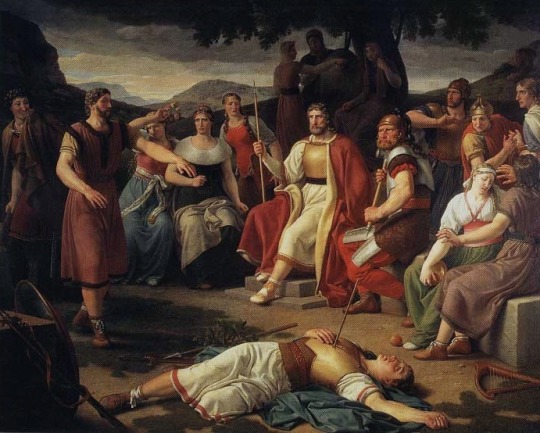
Baldur (sometimes written as Baldr) was the son of Odin and Frigg. He was thought to be beautiful and just and thus was a favorite of the gods. Baldur had a nightmare one day in which he saw his own death - Frigg too had the same dream. When the gods learned of this, they grew worried - Odin rode to Hel to talk with an oracle about the dreams. Upon his arrive, Odin found a dead seer, völva, and Odin using his power of resurrection to bring her back to life - she confirmed that Baldur would die but did not specify how. When Odin returned to Asgard he shared the knowledge that Baldur would die and that the seer didn't say how - immediately Frigg was upset and began to look for a way to save her son. Frigg resolved to approach all living things in existence and have them promise not to harm Bladur. When Loki learned that Baldur could not be harmed by anything, he was outraged and plotted a scheme to cause Baldur's and all the gods' greatest misfortune. Loki transformed into an old woman and asked Frigg if all things had sworn to do no harm to Baldur and Frigg responded that she hadn't asked or demanded mistletoe to do no harm to her son as it was a harmless weed. Frigg knew nothing of the lady's true identity. Loki however immediately located mistletoe and built a weapon (sometimes an arrow, other times a spear). To celebrate Baldur's invulnerability, a dinner of twelve guests was held and Loki (an uninvited thirteenth guest) arrived with the weapon. The gods had made a game out of throwing things that would normally do harm to a god at Baldur - they were having fun apart from Hodr, Baldur's blind brother. Loki approached Hodr and handed him the weapon telling him to throw it like a spear - Hodr did so and mortally wounded Baldur. All the gods surrounded him as he laid dying. Frigg demanded that someone travel to Hel and demand she give Baldur back - Hermod, Baldur's brother did so. For nine days he rode in search of Hel and when he found her, she stated that she would return him to the land of the living so long as everything wept for his return - all but a giantess named Thökk (Loki in disguise) wept for Baldur. Thus Baldur was forced to stay in Hel; his wife (Nanna) died of grief and the gods set their bodies ablaze. As punishment, when Loki, was found out to be the reason for Baldur's permanent death, Loki was bound to the infamous rock with a snake hung over head to drip poison on his brow - the next event to take place was Ragnarok (a misfortunate event - making Baldur's death story in which a thirteen guest was the cause of his death, Frigg's (Friday's) worst nightmare and a day of misfortune - she also swore that mistletoe would always be an object of love and never one of harm from that day on). IN MY OPINION Balder in your chart can represent a) where you are loved by all (except for the sign/planets your loke is in and/or aspects), b) where you have precognitive powers, c) where others would do anything to save you, d) where you shine the brightest for others before a period of darkness, and/or e) how missed you are in death.

i encourage you to look into the aspects of balder along with the sign, degree, and house placement. for the more advanced astrologers, take a look at the persona chart of balder AND/OR add the other characters involved to see how they support or impede balder!
OTHER RELATED ASTEROIDS: frigga (77), loke (4862), odin (3989), wodan (2155), hel (949), hela (699), hoder (4669), and hermod (2630)!
like what you read? leave a tip and state what post it is for! please use my “suggest a post topic” button if you want to see a specific post or mythical asteroid next!
click here for the masterlist
click here for more norse myths & legends
want a personal reading? click here to check out my reading options and prices!
#astrology#persona chart#asteroid#asteroid astrology#astro chart#astro community#natal chart#astro placements#norse folklore#norse mythology#friday the thirteenth#balder#asteroid4059#loki#loke#asteroid4862#frigg#frigga#asteroid77#wodan#odin#asteroid3989#asteroid2155
73 notes
·
View notes